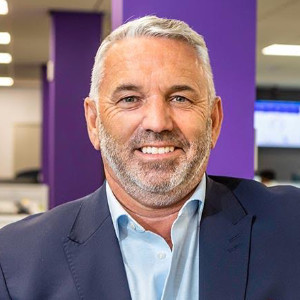Here at The Supper Club, the exclusive membership community of innovative founders and CEOs of high growth businesses, we’ve recently had some great discussions about non-executive directors, or NEDs, and how they can bring value to your company. Our members have seen least value from what they describe as “pale, male, stale” NEDs with outdated knowledge and experience who lack an entrepreneurial mindset or an understanding of the founder mentality. Some also admit that they have been dazzled by the corporate pedigree of some NEDs without checking their credentials and their suitability for the role.
Our members mentioned that there are some misconceptions about NEDs that can deter founders that it’s important to dispel. A NED is not there to run your business, for example. “Your NED is independent,” said Alison Coleman, founder and former managing director of En Route International which provides on-board catering solutions to domestic and international carriers across five continents. “They have responsibility for providing an external perspective and constructively challenging the strategy of the company, so don’t get them involved in the day to day management.”
When deciding who to work with, it’s important to find someone who has their finger on the pulse. “Your NED should continually update themselves and get to know the company; especially within the first three months of being appointed,” Coleman added. “They should be passionate and self-motivated so allow them the freedom to do this.”
Understanding the breadth of value, a NED can bring is the first step in recruiting the right one for you and your business.
An experienced NED can offer invaluable advice to founders on how to structure and manage their board, hire or promote senior managers and develop the growth strategy. They should challenge the board and provide mentorship to the founder and leadership team. They can also help founders to prepare for an exit, find the right investor or buyer from their network and maintain focus. They can also help with succession planning.
Members of The Supper Club who have seen the greatest value from NEDs recommend being clear about the experience and attributes they bring. “They need to demonstrate commercial awareness, financial astuteness, a readiness to challenge, integrity, an ability to engage, demonstrable career success and, last but not least, emotional intelligence,” explained Coleman.
Sohin Raithatha, CEO of Redsquid, the independent provider of unified communications solutions, recommended clarity on KPIs for a NED like any other senior hire. “Set clear and realistic expectations on ROI from the start and ensure both parties have a mutual understanding of the differences between their roles,” he said. “Hold regular reviews, communicate efficiently, and provide feedback on performance and ROI.”
Private equity investors will often look to put a NED on an investee’s board. Who they propose and how they see that person working with you can help you to decide which PE firm you want investment from and the executive talent network is becoming a major differentiator.
Tim Hastings is the founder and CEO of Ford Hastings, an executive recruitment specialist who has built a large network of NEDs from working with investors and founders to match the right skills to support scale. Hastings regularly shares his expertise with members of The Supper Club on everything from recruitment to appraisal to managing poorly performing NEDs out of the business.
“To be a good NED, you need a focused value proposition and you should fill a notable skills gap on the board,” he said. “A key selling point is a NED’s well-honed investor relation skills, judgement and successful track record. NEDs need to be fully committed and available as a sounding board for the CEO, offering strategic advice. Crucially, they should also be able to give wellbeing and emotional support. NEDs need to be objective at all times, a great listener, informed and wise, and a dedicated and reliable asset in what may be a tightly run ship.”
But how should you induct and incentivise NEDs, and hold them to account?
Hastings recommended an initial three-month probation, or a period of consultancy, so that you can test chemistry and understand how each other works. “If you’re happy with them, then engage them for one year and review the contract at the end against your initial KPIs,” he advised.
Remuneration and incentives vary depending on the motivation and experience of the NED. Based on one to two days a month, the average NED salary is between £30,000 and £40,000 in private businesses. Some will take a project fee instead of a salary if there is something specific you want them to work on. Some NEDs might want a success fee based on a percentage of the sale of your business.
“Be wary of NEDs who are too interested in the fee or who do not wish to buy equity in your business,” warned Hastings. “It can be an indication that they are only there to get paid and not fully invested in your businesses growth.”
It’s recommended that any share schemes are clear and simple without complications that might affect an eventual exit or make it hard to buy them out.
If a NED isn’t having the impact you want them to, it’s always worth an open and honest conversation to re-align expectations and input some new KPIs. “As with any employee, you should review your NED’s progress every quarter to ensure that they are on track,” Hastings said. “If it’s not working out, call it out sooner rather than later and use the performance information to resolve it. Make sure your contract allows you to do this, with a reasonable notice period.”
A final point to remember is that, while NEDs should hold you to account and maintain good governance, they are also accountable as directors. They have liability as a director even if they are not on Companies House. ![]()
Share via:


















































